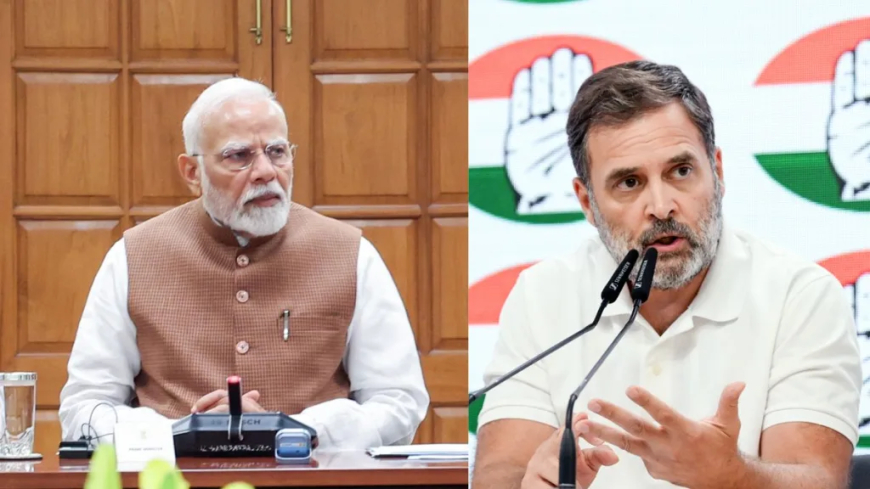Congress to Hold ‘Jai Hind Sabha’ in Jabalpur: A Strategic Move to Reignite Grassroots Momentum
The Congress party is organizing a massive 'Jai Hind Sabha' in Jabalpur, Madhya Pradesh, in a bid to revive its grassroots connect and counter the BJP's regional dominance. Explore the political strategy and expected impact.

The Indian National Congress is gearing up to host a large-scale public meeting titled ‘Jai Hind Sabha’ in Jabalpur, Madhya Pradesh, marking a significant moment in the party’s efforts to revive its grassroots presence ahead of the 2025 local elections. With senior leaders expected to attend, this event is being touted not just as a rally, but as a calculated political maneuver to reclaim lost ground in a state that has seen the BJP’s deep electoral entrenchment.
Why Jabalpur? The Political Context
Jabalpur, historically a Congress stronghold, has recently tilted in favor of the Bharatiya Janata Party (BJP), reflecting a broader pattern across Madhya Pradesh. The choice of Jabalpur for the Jai Hind Sabha is symbolic. It not only taps into the region's legacy of freedom fighters and nationalist movements, but also sends a clear signal that Congress is ready to fight back from its traditional bastions.
According to PRS Legislative Research, Madhya Pradesh has seen a steady swing toward BJP leadership at both the state and central levels over the last two decades. Yet, Congress remains a key challenger in tribal belts and urban pockets like Jabalpur.
The Objectives Behind ‘Jai Hind Sabha’
1. Reconnecting with Grassroots Cadres
The Congress plans to use the ‘Jai Hind Sabha’ as a platform to mobilize its local units, revive block-level enthusiasm, and launch mass contact programs. Party insiders say the event is structured around Jan Samvad (public dialogue) and ground-level volunteer activation.
For a deeper dive into Congress’s grassroots strategy, check this research paper on party structures by the Centre for Policy Research.
2. Positioning Nationalism in a New Frame
Unlike the BJP’s brand of majoritarian nationalism, Congress is expected to champion an inclusive, secular, and democratic patriotism at the Jai Hind Sabha. The choice of the phrase "Jai Hind" itself is a historical nod to Netaji Subhas Chandra Bose, often underplayed in today’s political narratives.
Read more about Congress’s evolving nationalist positioning in The Wire’s political analysis.
Expected Speakers and Political Firepower
Prominent figures like Rahul Gandhi, Mallikarjun Kharge, and Digvijaya Singh are slated to address the gathering, along with regional heavyweights from Madhya Pradesh. The event is also expected to feature young leaders like Kanhaiya Kumar and Priyanka Chaturvedi, signaling a generational shift in Congress’s leadership narrative.
In previous campaigns, such as Bharat Jodo Yatra, Rahul Gandhi’s messaging resonated with youth and farmers. The Jai Hind Sabha will likely build upon that momentum.
To understand Congress’s national outreach model, refer to Bharat Jodo Yatra case study by ORF.
Impact on Regional Politics and BJP’s Response
The BJP has so far maintained a measured silence regarding the Jai Hind Sabha but is closely monitoring the event. Local BJP leaders in Jabalpur have started counter-mobilization campaigns, indicating the Sabha has already made political waves.
Political observers believe the Congress is banking on public fatigue with incumbency, especially amid unemployment, inflation, and agrarian distress, to reset the narrative.
For real-time political sentiment analysis in Madhya Pradesh, see CSDS Lokniti reports.
Media Strategy and Public Engagement
Unlike traditional rallies, the Jai Hind Sabha will be live-streamed across platforms, and integrated with local WhatsApp groups, regional influencers, and micro-vlogging updates. Congress’s media team has reportedly been training booth-level IT cells to ensure reach beyond mainstream media blackouts.
Public participation will include farmers’ unions, tribal leaders, student activists, and ex-servicemen, making the event multi-class and multi-issue in character.
Challenges and Risks Ahead
While the Jai Hind Sabha is ambitious in scope, Congress faces several challenges:
-
Factionalism within state leadership
-
Voter cynicism due to past performance gaps
-
Limited media amplification compared to BJP’s communication machinery
The success of the Sabha depends not just on turnout but on follow-through mechanisms—policy clarity, local candidate selection, and sustained grassroots work.
Explore: Hindustan Times political column on party image repair strategies.
Conclusion: A Litmus Test for Congress Revival?
The ‘Jai Hind Sabha’ is more than a political event—it is a strategic experiment. If executed with coherence and discipline, it could mark the beginning of a robust Congress resurgence in Madhya Pradesh. If it falters, it may be remembered as another missed opportunity in a long list of political miscalculations.
As India’s political landscape becomes more polarized, events like these will shape not just election outcomes but the very contours of public dialogue and ideological identity.


















































